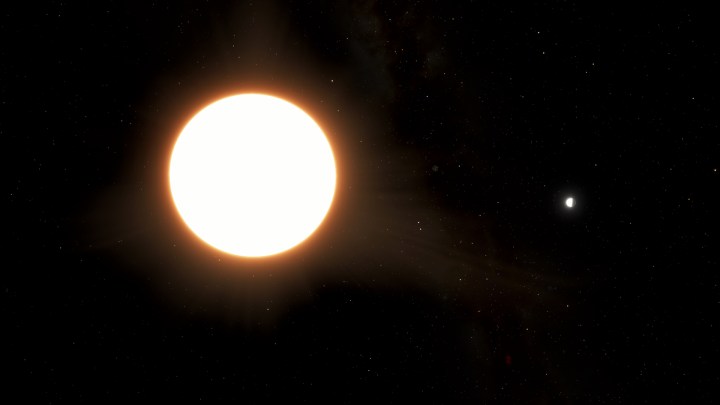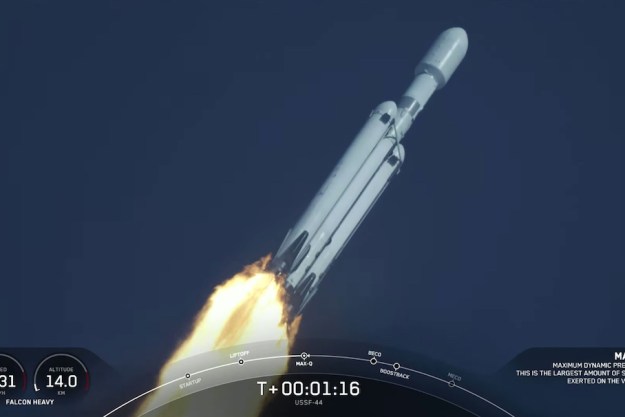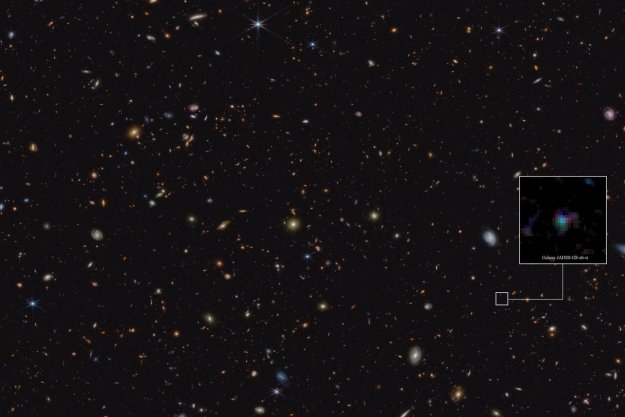Astronomers space the shiniest exoplanet ever learned

Whenever you stare up on the evening sky you search for largely stars, now not planets — and that’s simply because planets are so grand smaller and dimmer than stars. Nonetheless it’s good to search for planets in our solar map, cherish Venus, which is one of many brightest objects in the evening sky. On account of its thick, dense ambiance, Venus reflects 75% of the solar’s gentle, making it shine brightly. Lately, though, astronomers learned a planet that reflects grand more of its wide establish’s gentle, making it the shiniest exoplanet ever learned.
Exoplanet LTT9779 b reflects 80% of the sunshine from its wide establish, which it orbits very shut to. That makes it extremely sizzling, and researchers factor in that the planet is roofed in clouds of silicate and liquid metal, which is what makes it so reflective.
“Imagine a burning world, shut to its wide establish, with heavy clouds of metals floating aloft, raining down titanium droplets,” acknowledged one of many researchers, James Jenkins of Diego Portales University, in a statement.

Surely, the planet is so sizzling that the presence of clouds in any appreciate used to be considerably befuddling. The ground temperatures there attain as much as 2,000 degrees Celsius, which ought to restful be too sizzling for clouds of water or even metals to develop.
“It used to be if fact be told a puzzle, till we realized we ought to restful factor in this cloud formation in the same design as condensation forming in a lavatory after a sizzling shower,” explained researcher Vivien Parmentier of the Observatory of Côte d’Azur. “To steam up a lavatory it’s good to both frosty the air till water vapor condenses, otherwise it’s good to relieve the original water operating till clouds develop because the air is so saturated with vapor that it simply can’t retain any more. In the same vogue, LTT9779 b can develop metallic clouds regardless of being so sizzling because the ambiance is oversaturated with silicate and metal vapors.”
The planet is also abnormal on account of its size and save. At 4.7 cases the size of the Earth, it is a form of planet called a sizzling Neptune which is infrequently ever learned orbiting so shut to its wide establish. “It’s a planet that shouldn’t exist,” acknowledged Vivien. “We search files from planets cherish this to bear their ambiance blown away by their wide establish, leaving on the assist of naked rock.”
The researchers theorize that it can be the metallic clouds which bear safe the planet’s ambiance by reflecting gentle and stopping it from getting too sizzling, which prevents the ambiance from being boiled away.
The look at is printed in the journal Astronomy & Astrophysics.
Editors’ Solutions
-
James Webb sees proof of an ocean-lined ‘Hycean’ exoplanet
-
Neptune has a sad space of its possess, and it has been imaged from Earth
-
James Webb captures image of the most a ways-off wide establish ever learned
-
Hubble watches an wrong exoplanet being stripped by its wide establish
-
Webb spots water vapor in a planet-forming disk

Georgina is the Digital Traits dwelling writer, maintaining human dwelling exploration, planetary science, and cosmology. She…
Programs to test SpaceX originate ideal ever industrial comms satellite tv for pc on Friday

Hughes JUPITER 3 Mission
UPDATE: SpaceX called off Wednesday evening’s Falcon Heavy originate impartial some minutes sooner than it used to be position to snatch off. The firm had hoped to try as soon as more on Thursday evening but is now focusing on Friday evening in remark that it will whole car checkouts. Elephantine considerable factors below.
Read more
Defunct satellite tv for pc to rating first-ever relieve for receive reentry

The European Home Agency (ESA) is about to accomplish the most considerable-ever assisted reentry of a defunct satellite tv for pc to be ready to invent obvious the protection of of us and property on Earth.
If the maneuver is a success, any parts of the 1,100-kilogram Aeolus satellite tv for pc that live to command the tale the high-bolt reentry on Friday, July 28, will crash into the Atlantic Ocean.
Read more
James Webb spots outmoded dirt that would be from the earliest supernovas

Mud could now not sound cherish the most challenging of topics, but to a obvious position of astronomers, it’s thrilling. Researchers recently outmoded the James Webb Home Telescope to establish grains of dirt from the early universe, which can were produced by the earliest supernovas.
James Webb is a mighty tool because it permits researchers to establish extremely a ways-off, and on account of this truth extremely previous, galaxies. Webb could furthermore be outmoded to now not easiest establish these early galaxies but also to snatch spectra from them, which is ready to point their chemical composition by seeing which wavelengths of sunshine they absorb. As share of a stare called JWST Evolved Deep Extragalactic Explore or JADES, Webb’s NIRCam instrument took this image of a plan of the sky called GOODS-South. Within that image, researchers outmoded Webb’s NIRSpec instrument to stare on the spectra of early galaxies cherish JADES-GS-z6.
Read more